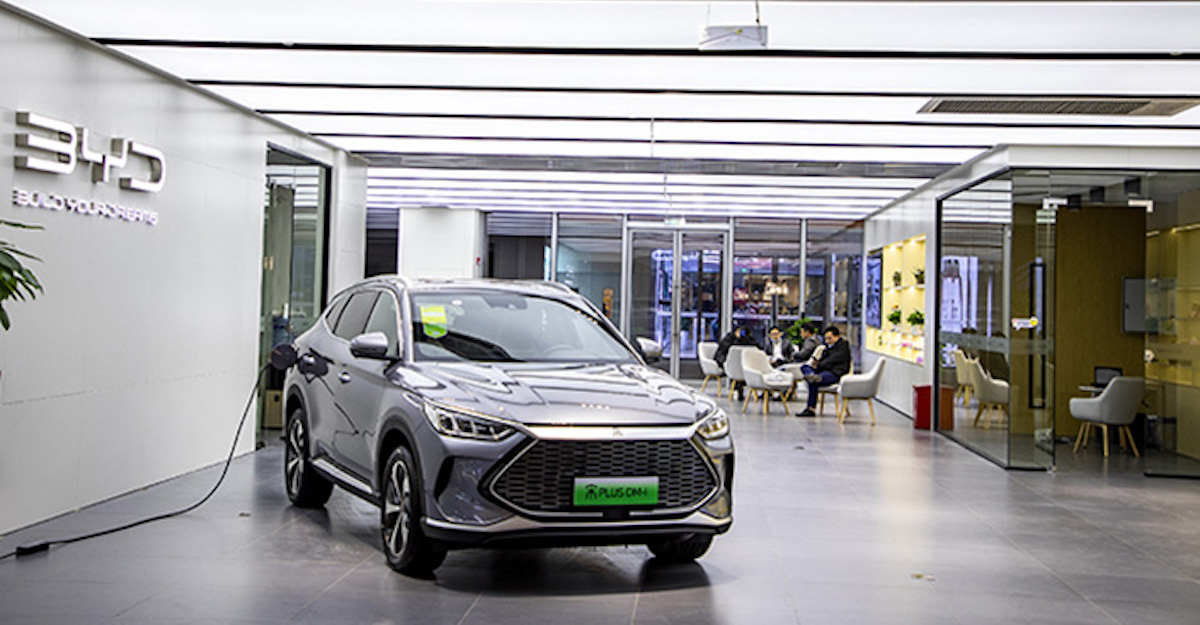Ask anyone on the street to name an electric vehicle (EV) brand, and chances are, you’ll get replies that include Tesla, Nio, and other high-profile companies.
But what if none of them actually hold the title of selling the most EVs? In fact, the company that sold the most EVs in the first half of 2022 is actually BYD, a Shenzhen-based Chinese auto giant.
According to the Financial Times, BYD sold 641,000 vehicles during the first six months of the year, compared to 564,000 by Tesla and 332,000 by Volkswagen.
This is quite the coup — who would have thought that Tesla’s dominance of the market could be overturned?
And lest we think that BYD is simply cashing in on domestic sales in China — the company has actually been present in Singapore since 2014, and have also established their presence in Cambodia, Australia, and Europe.
So what does BYD do, and what are its plans for Singapore?
Who is buying BYD’s EVs?
To explain BYD’s success, it would be helpful to ask who is actually buying its EVs. After all, they have overtaken Tesla in terms of number of sold EVs.
For BYD, it seems that they focus quite strongly on selling to companies instead of private individuals.
Earlier this year, ComfortDelGro purchased 100 EVs from BYD. Singapore Electric Vehicles Pte Ltd also purchased 500 units of the new BYD e6 for their private-hire operations.
BYD also produces electric buses and currently, Singapore’s Land Transport Authority uses 20 BYD K9 city buses, Tower Transit uses four C6 minibuses, and HDT Singapore uses several different models to run shuttle transport for condos, country clubs, as well as schools.
Other clients include Evfy, SingPost, and Aetos — all with different operational needs, but united in their patronage of BYD.

In Singapore, the BYD T3 van is arguably one of the best-selling electric vans since its launch, with more than 400 orders. Many private and public companies started their first EV purchase with it. With the help of government subsidies, we believe that larger logistics companies might also find it viable to use our vans in their business operations as well.
– BYD spokesperson
Leading the charge towards clean energy
Aside from selling EVs, BYD has also made a name for itself in related fields. In particular, the company is big on clean energy.
BYD has developed its own blade battery, which is intended to mitigate concerns about safety in EVs. In addition, the company develops its own plug-in hybrid tech, as well as solar panels, energy-efficient LED displays, and Energy Storage systems.

But the journey has not always been easy for them. One of the company’s early skeptics was none other than Tesla CEO and co-founder Elon Musk, who criticised the company for its lacklustre products and EVs that could not match up to Tesla’s high speeds.
Back then, the company faced notoriously high recall rates for their vehicles — sometimes in the double digits. Even now, some vehicles are being recalled due to issues with the car’s battery.
That being said, an automotive analyst that Vulcan Post spoke to pointed out that recalls in the auto industry are nothing rare in particular.
Recalls are normal in the auto industry and I don’t see it as a major issue for BYD. In fact, BYD is actually supplying Tesla with their blade batteries for some variants of Tesla’s Model Y in Europe. That’s a strong signal of confidence in BYD’s battery tech.
BYD is also one of the strongest vertically integrated companies in the industry, which helps with their pace of innovation. Many Western or Japanese car companies may struggle with their battery supplies or chip supplies — BYD doesn’t really have this issue.
– Automotive analyst
What does BYD have in store for Singapore?
From its arrival in Singapore nearly 10 years ago, BYD has certainly shown tremendous growth, but the company has more in the works and big plans for Singapore.
A BYD spokesperson told Vulcan Post that “BYD’s long-term goal is to replace oil with electricity in the field of road transportation”. The company stands behind Singapore’s sustainable development concept and is eager to participate in the electrification of local transportation.
In addition, the company will continue to deepen its efforts in the field of new energy, and continue to provide high quality tech, products, and services for the Southeast Asia market.
BYD also sees Singapore as a key market, and a conduit through which the company will expand in the region to provide more environmentally-friendly EV models.
“BYD will also strive to promote sustainable development, build a global network with complementary advantages, and win-win cooperation with its partners, contributing to energy conservation and emissions reductions,” added the spokesperson.

While BYD has dethroned Tesla as the top retailer for EVs, at least for the first half of this year, only time will tell if BYD can hold on to that title — as the analyst pointed out, “it is solid progress for BYD and EVs in general, but there’s a lot of nuances in the story.”
However, with BYD’s strong vertical integration, they are poised to make an impact on EV adoption in Singapore as the country moves towards electrifying transportation — certainly a company to look out for as it joins the elites of EV brands.
Featured Image Credit: Caixin Global








